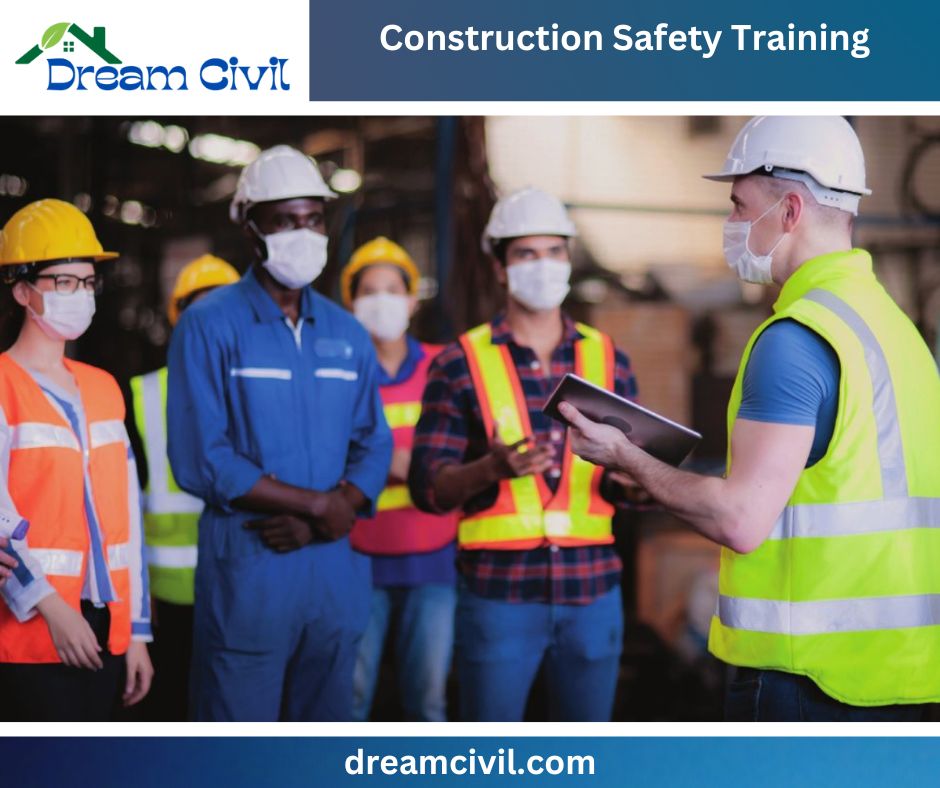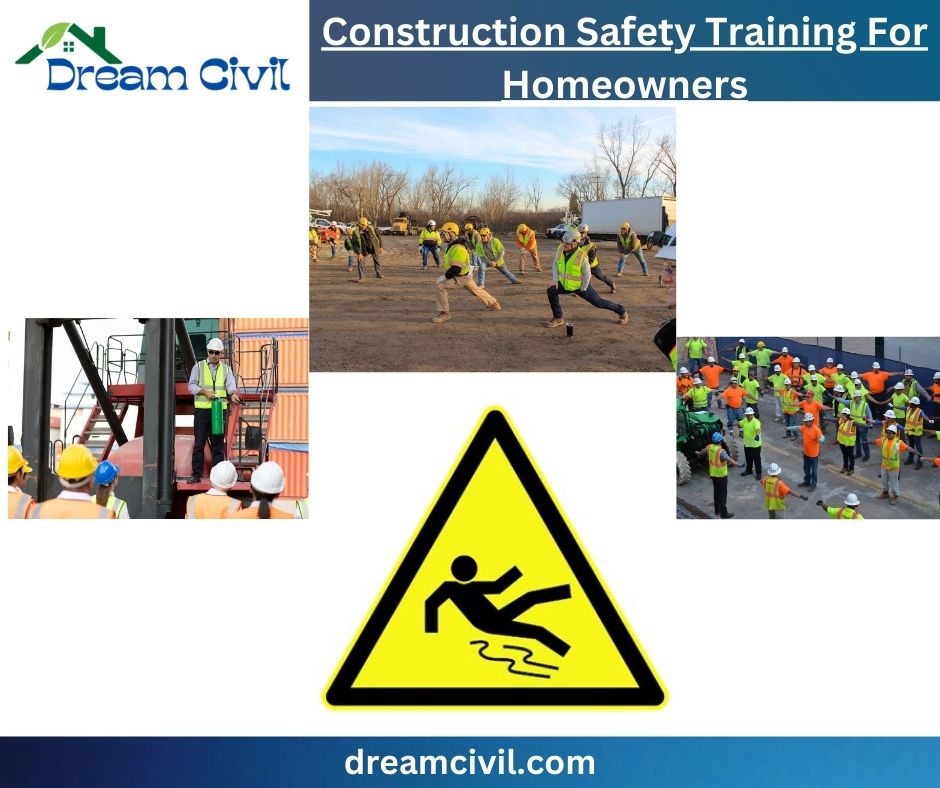Table of Contents
This article portrays all the essential information on the 15 Most Effective Construction Safety Training For Homeowners.
| Read More: Construction Attorney: 5 Most-asked Questions |
A. What is meant by construction safety training?

✓ Construction safety training is a program to teach construction homeowners the necessary skills and knowledge to stay safe.
B. What are the benefits of construction safety training?

✓ Homeowners must receive construction safety training to guarantee their safety and the safety of others when engaging in home improvement or construction projects.
✓ Even though homeowners may not possess the same expertise and awareness as professional contractors, they can still benefit from fundamental safety training to minimize the likelihood of accidents and injuries.
C. What are the Construction Safety Training For Homeowners?

✓ Some of the construction safety training for homeowners are given below:
1. Fall protection: For homeowners, safety during construction is crucial. Falls are a common cause of injuries on construction sites, which is why training is necessary. During training, you will learn how to use fall protection equipment like harnesses and guardrails to stay safe while working at heights.
2. Electrical safety: Electrical hazards are one of the primary concerns for homeowners. Training will teach them to determine and avoid electrical hazards, i.e., live wires and downed power lines. Teaching homeowners to identify electrical hazards, turn off power to specific home areas, and use extension cords safely.
3. Hands-On Practice: Use hands-on practices, demonstrations, or exercises to toughen safety concepts. For example, show homeowners to properly use a fire extinguisher or properly wear a safety harness.
4. Regular Updates: Inspire homeowners to stay instructed about safety by doctoring refresher courses or seeking professional guidance when starting a new project.
5. Excavation safety: Excavations can be unsafe and collapse, posing a heavy worker hazard. It helps to teach to recognize and bypass excavation hazards, such as trench collapses.
6. Confined space safety: Confined spaces can be dangerous due to unsafe gases or fumes. It teaches homeowners to determine and bypass confined space risks, such as ventilating confined spaces before entering them.
7. Fire safety: Fires can arise on construction sites, and knowing how to prevent and respond to fires is essential. Training will teach to identify fire hazards, evacuate a building safely, and use fire extinguishers in the event of a fire.
8. Basic Safety Principles: Start and implement fundamental safety principles, teach the safe handling of tools, proper use of personal protective equipment (PPE), and general awareness of hazards.
9. Tool and Equipment Training: Provide instruction and education on the safe operation of standard tools and equipment homeowners may use, such as drills, ladders, saws, and power tools. Highlight reasonable supervision and storage of tools.
10. Chemical Safety: If homeowners use solvents, paints, or other chemicals, guide proper handling, storage, and disposal. Stress the significance of reading product brands and following pedagogy.
11. Ladder Safety: When working on home improvement projects, it is essential to prevent ladder accidents by adequately selecting, setting up, and climbing the ladder safely.
12. Emergency Response: Instruct homeowners on responding to emergencies, including injuries, fires, and unexpected situations. Ensure they locate fire extinguishers, first aid kits, and emergency exits.
13. Material Handling: Guide safe material handling techniques, such as carrying and lifting heavy objects to control strains and sprains.
14. Project Planning: It is essential for homeowners to thoroughly plan their projects, including budgeting, obtaining necessary permits, and creating a timeline. This can help prevent rushed and potentially unsafe work.
15. Access to Resources: Homeowners can access safety guides, local building codes, and emergency service contacts through additional resources.
D. What are the most important safety topics for construction?
✓ fall protection
✓ electrical safety
✓ ladder safety
✓ heavy machinery safety
✓ welding safety
✓ confined space safety
E. What is the best safety qualification?

Here are some of the best safety qualifications. They are:
✓ Construction Health and Safety Technician (CHST)
✓ Occupational Hygiene and Safety Technician (OHST)
✓ Safety Trained Supervisor (STS)
✓ Certified Industrial Hygienist (CIH)
✓ Certified Safety and Health Manager (CSHM)
✓ Certified Safety Professional (CSP)
✓ Certified Hazardous Materials Manager (CHMM)
F. What is a safety management system?

✓ A Safety Management System (SMS) is a system that manages safety risk by implementing a formal management system or framework.
G. What is safety as used in construction?
✓ Construction site safety protects workers and others from health and safety risks during construction activities.

